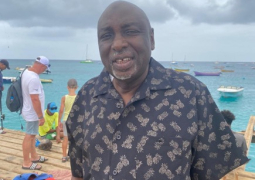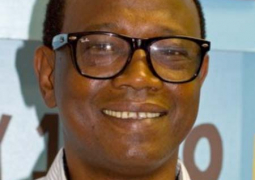Later this year in November, Egypt will proudly host COP-27. As a British businessman, I was delighted that the UK hosted the COP26 in Glasgow in November, and enjoyed attending the summit for a few days. The fact that the Summit moves to a member state of the African Union this year is significant as the impact of climate change on Africa is likely to feature prominently.
The Great Green Wall is a hugely ambitious and exciting green project for Africa. It is a visionary undertaking to grow 8,000km of trees, a “new world wonder”, across the entire width of Africa. Funding pledges to the tune of $19 billion have already been made from a number of sources, including the Green Climate Fund and African Development Bank. There is also high-level support from the likes of French President Emmanuel Macron and the Prince of Wales.
The issue of global climate change is obviously huge and complicated but the Great Green Wall is appealing as it proposes a simple action, through planting trees to combat climate change. Not only do trees act as carbon sinks, they also lower the air temperature, help prevent flooding, improve soil quality, sustain wildlife, and more.
We are constantly reminded of the green challenge facing humanity. Just last week [28 Feb], the Intergovernmental Panel on Climate Change (IPCC) released its latest report on the state of climate change. Its findings were stark, with António Guterres, the UN Secretary-General, calling the report “an atlas of human suffering”. Amongst the report’s key observations was further recognition of the climate apartheid; that climate change will cause certain parts of the world, tragically those which have historically contributed the least emissions, to become unliveable. Many of these countries are in Africa. Already, the report warns that huge numbers of Africans have been exposed to food and water insecurity due to global warming. It also warns of other catastrophic events, such as an increase in the spread of diseases, including the potentially life-threatening dengue virus. Nevertheless, the report offers some tentative hope – if we stick to the key target of limiting temperature rises to no more than 1.5°C above pre-industrial levels.
Of course when global leaders come together at COP and other Summits, they “talk big.” However, there is invariably a disconnect between high-level rhetoric and financial commitments on the one hand and what communities – the ultimate custodians of this initiative – may or may not want, on the other.
That is why Civic, the not-for-profit initiative I chair, launched Great Green Wall Frontline – an initiative launched in partnership with the African Union, at the COP-26 Summit. We were delighted that the Prince of Wales attended our event and heard from a diverse group of African youth leaders, who launched a new manifesto calling for citizens along the Great Green Wall to play a far deeper role in shaping the vision. The Great Green Wall cannot be a top-down solution imposed on Africa. It must involve, engage, and mobilise the people of the Continent so that they are engaged participants and leaders of the project, not passive observers.
The Great Green Wall project is important and relevant for several reasons. First, as mentioned, it can help to address climate change in Africa. The continent may account for only 4% of carbon emissions, but it is the most vulnerable continent to the effects of climate change. It is showing higher rates of warming than the global average and this trend is likely to cause widespread devastation, including mass migration, conflict, and food insecurity. The Great Green Wall offers a positive and proactive response to the problem of global warming across the continent. Second, it has the potential to help economically. It is estimated that restoring 100 million hectares of degraded land across 11 countries, could create up to 10 million green jobs. Finally, it can empower a new generation of young civil society leaders in Africa to make positive change, with a common purpose across nations.
Asking people on the ground what they think and encouraging them to get involved will be a key element of the success of the Great Green Wall. Pledges of huge sums by politicians at various summits will not crack this on its own. At Civic, working with the AU, we will be holding the first citizen assembly for the Great Green Wall in June. The Great Green Wall is a huge and exciting opportunity, but it has to be people-powered, with the deep buy-in of local communities. COP26 showed the role that governments and business can play, but for this mega-project to truly succeed, we need a grassroots movement led by those on the frontlines.
With Egypt playing host to COP27, world leaders will be confronted by the reality of climate apartheid first-hand. It is only the fifth time that an African country has played host to the prestigious summit since the first one was held in Berlin in 1995. There will be an opportunity to address the specific environmental challenges faced by Africa. It will present Africans as the frontrunners in the global fight against climate change that they truly are. Great Green Wall Frontline hopes to serve local leaders and activists as part of their ambitious plans for Africa’s sustainable future.
Michael Samuel MBE is Chair of the not-for-profit Civic, and the AU have seeded the development of the Great Green Wall Frontline movement' as the latter adds greater clarity to Civic and AU's relationship? - https://www.greatgreenwall.com/en/





